Disaster Service

How can climate services help in disaster risk reduction ?
Climate services play a crucial role in disaster risk reduction by providing essential information and tools that help communities, governments, and businesses to anticipate and respond to the impacts of climate change. These services encompass a range of activities, including weather forecasting, climate monitoring, and the development of early warning systems. Climate services contribute to disaster risk reduction through several strategies, including risk assessment, preparedness planning, early warning and response, and recovery and resilience building. By leveraging these services, societies can build resilience against the increasing challenges posed by a changing climate.
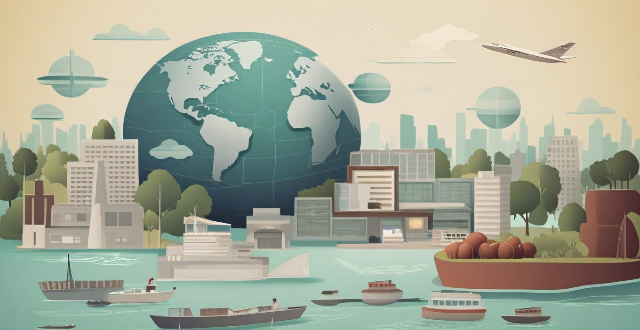
How can satellite communication be used for emergency response and disaster relief ?
Satellite communication is critical in emergency response and disaster relief, offering global coverage, high availability, scalability, and multipurpose use. It enables immediate alerts, coordination, resource deployment, and medical assistance during emergencies. In disaster relief, it aids damage assessment, information dissemination, infrastructure recovery, and aid distribution. Key technical aspects include satellite phones, VSAT terminals, and data collection through sensors. Proper logistics such as training, maintenance, and partnerships with service providers are crucial for effective utilization. Satellite communication significantly enhances the capability to respond to natural disasters and emergencies, reducing their impact on lives and properties.

How can I prepare myself to give effective first aid in case of a natural disaster ?
To prepare for effective first aid in natural disasters, it's important to get educated and trained in basic life-saving techniques, assemble a well-stocked emergency kit, maintain personal health, engage in community preparedness efforts, and stay informed through reliable sources. This comprehensive approach ensures readiness to handle medical needs during disasters and enhances overall resilience.
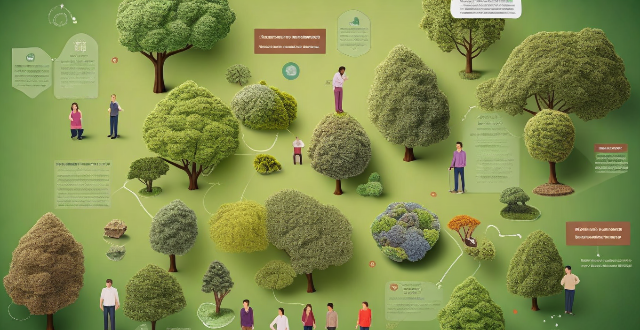
What is disaster risk management ?
Disaster risk management (DRM) is a comprehensive approach aimed at reducing the impact of natural and human-made disasters on communities. It involves understanding, assessing, and reducing risks through prevention, preparedness, response, and recovery strategies. The goal is to ensure that people's lives and livelihoods are not compromised by disaster events. Key components include risk assessment, hazard mitigation, early warning systems, emergency planning, community education, immediate action, coordination, rehabilitation, reconstruction, and sustainable development. Best practices involve multi-stakeholder collaboration, gender sensitivity, use of technology, inclusive planning, and regular review and updating. Challenges include limited resources, political will, information gaps, and cultural differences. Effective DRM requires a multifaceted approach that considers social, economic, and environmental factors.
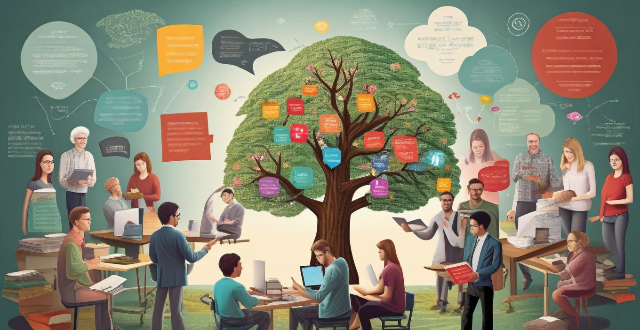
How important is public awareness and education in the context of disaster risk management ?
Public awareness and education are vital in disaster risk management, enhancing community preparedness, reducing vulnerabilities, promoting resilience, and encouraging community engagement. Examples like Hurricane Katrina and the Japan Earthquake and Tsunami highlight the importance of these initiatives in saving lives and minimizing damages during disasters.

What are the common challenges faced while implementing disaster risk management plans ?
Disaster risk management plans are essential for organizations and communities to prepare for, respond to, and recover from disasters. However, implementing these plans can be challenging due to various factors such as limited resources, lack of awareness and preparedness, coordination and communication issues, legal and regulatory constraints, unpredictable nature of disasters, inadequate technology and infrastructure, cultural differences and perceptions, and lack of trust in government institutions.
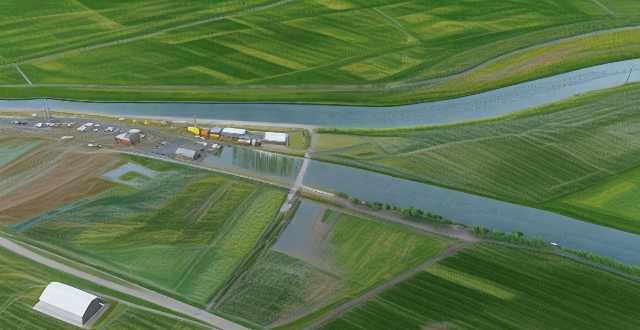
How can climate data analysis help in disaster risk reduction and management ?
Climate data analysis is crucial for disaster risk reduction and management. It helps identify high-risk areas, predict future weather patterns, develop mitigation strategies, and enhance disaster response and recovery efforts. By analyzing past and current climate data, we can better prepare for and respond to natural disasters such as floods, hurricanes, wildfires, and droughts.

How does climate change affect disaster risk management strategies ?
The article discusses how climate change affects disaster risk management strategies. It explains that as the Earth's climate warms, extreme weather events such as hurricanes, floods, and wildfires are becoming more frequent and severe. This means that disaster risk management strategies must be adapted to address these new challenges. The article explores the increased frequency of extreme weather events, changes in agriculture and food security, and impacts on human health. It suggests that disaster risk management strategies should focus on improved forecasting, infrastructure improvements, evacuation planning, sustainable farming practices, crop diversification, food storage and distribution systems, healthcare infrastructure, public health education, and disease surveillance. By taking these steps, we can better prepare for and respond to natural disasters in a changing climate.

What is the role of international organizations and cooperation in enhancing global disaster risk management ?
The text discusses the importance of international organizations in disaster risk management. It mentions their role in promoting cooperation, developing policies, coordinating resources, building capacity, advocating for risk reduction, and facilitating research. The text concludes that these efforts are crucial for creating a resilient world capable of withstanding natural disasters while minimizing loss of life and property damage.

What is the relationship between climate finance and disaster risk reduction ?
Climate finance and disaster risk reduction are interconnected concepts that address the impacts of climate change. Climate finance provides funding for projects aimed at reducing greenhouse gas emissions and adapting to climate change, while disaster risk reduction involves strategies to minimize the potential impacts of natural disasters on communities and infrastructure. The relationship between the two lies in their shared goal of addressing climate change, with climate finance supporting disaster risk reduction through funding for adaptation measures, investments in vulnerable communities, promoting sustainable development, encouraging innovation, and strengthening institutional capacity.

How do insurance mechanisms support disaster risk management and recovery processes ?
Insurance mechanisms play a vital role in supporting disaster risk management and recovery processes, providing financial protection to individuals, businesses, and governments against the economic impacts of natural disasters. They encourage risk mitigation measures, offer financial protection through various policies, facilitate recovery and reconstruction, invest in catastrophe modeling and research, and create public-private partnerships to improve disaster preparedness and response.

What kind of insurance coverage should I have for disaster preparedness ?
When it comes to disaster preparedness, having the right insurance coverage is crucial. Here are some types of insurance that you should consider: - Homeowners Insurance: Covers the structure of your home, personal belongings, and provides temporary housing expenses if you cannot live in your home due to a covered loss. - Flood Insurance: Covers damage to your home and its contents caused by flooding and requires an Elevation Certificate. - Earthquake Insurance: Covers damage to your home's structure and personal belongings caused by an earthquake. - Windstorm/Hurricane Insurance: Covers windstorm or hurricane damage with a specific deductible and exclusion clauses. - Liability Insurance: Covers bodily injury or property damage that you cause to others and provides additional liability coverage beyond standard policies. - Business Insurance: Covers lost income and extra expenses if your business is interrupted by a disaster and damage to your business property. - Life Insurance: Provides coverage for a specific period of time or lifetime coverage and builds cash value over time. - Health Insurance: Ensures coverage for medical expenses related to disasters and ER visits during emergencies.
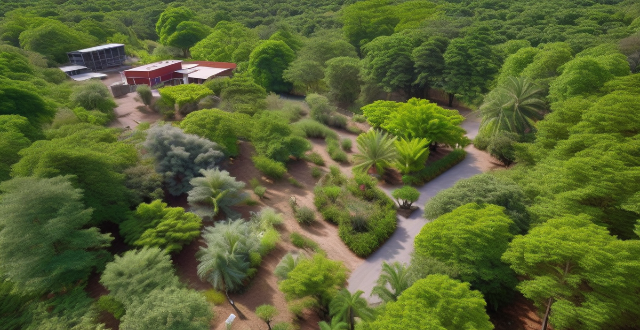
How does disaster risk management help in reducing the impact of natural calamities ?
Disaster risk management is crucial for reducing the impact of natural calamities. It involves risk assessment, reduction, emergency preparedness, and response and recovery efforts. Effective disaster risk management can save lives, protect property, maintain economic stability, and enhance community resilience. It reduces the impact of natural calamities through early warning systems, structural improvements, education and awareness programs, emergency response plans, and recovery efforts. By implementing these components, we can build more resilient societies capable of withstanding natural disasters.

Can you give examples of best practices in disaster risk management from different countries ?
Disaster risk management is a crucial aspect of ensuring the safety and well-being of communities worldwide. Here are some examples of best practices in disaster risk management from different countries: Japan is known for its advanced earthquake preparedness and response systems, including an early warning system, regular drills and training, and strong building codes. The United States has a well-established emergency management system that includes community preparedness programs, an integrated emergency management system, and public awareness campaigns. Norway has developed an early warning system for landslides, flood forecasting models, and avalanche mitigation strategies to protect against natural disasters. India has implemented a cyclone preparedness program, flood forecasting and early warning systems, and earthquake-resistant construction techniques in high-risk areas.

What steps should I take to prepare my home for a natural disaster ?
Preparing your home for natural disasters is crucial to ensure the safety of your family and property. Here's a summary of key steps: 1. **Assess Your Risk**: Identify potential disasters and determine your vulnerability based on location. 2. **Develop an Emergency Plan**: Create and practice a plan outlining evacuation routes and meeting places. 3. **Secure Your Home**: Take measures like securing loose objects, reinforcing windows/doors, installing shutters, anchoring furniture, trimming trees, clearing gutters, inspecting the roof, and considering a sump pump. 4. **Maintain Essential Supplies**: Stock up on food, water, medication, first aid kits, backup power sources, important documents in waterproof containers, and prepare an emergency kit. 5. **Stay Informed**: Keep updated on weather conditions and sign up for emergency alerts. By following these steps, you can significantly reduce the risks associated with natural disasters and ensure better preparedness and recovery.

Are iPhone parallel imports eligible for Apple's after-sales service ?
iPhone parallel imports can be eligible for Apple's after-sales service if they meet certain conditions, including proof of purchase, valid warranty, no tampering, and region compatibility.
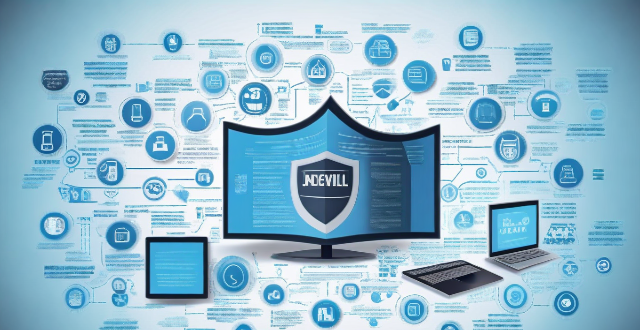
How does a VPN service work ?
A VPN (Virtual Private Network) is a service that encrypts users' internet traffic and masks their IP addresses to protect their privacy and security online. It consists of a client software installed on the user's device and a server that acts as an intermediary between the user and the internet. VPNs use tunneling protocols and encryption algorithms to establish secure connections, with options for both automated and manual configuration methods. They are particularly useful in masking users' IP addresses and ensuring data transmission security. However, some VPN services may impact internet speeds and raise privacy concerns if they collect and sell user data. When choosing a VPN service, consider its performance, reliability, and privacy policy.

How do I contact customer service for my mobile operator ?
How to Contact Customer Service for Your Mobile Operator
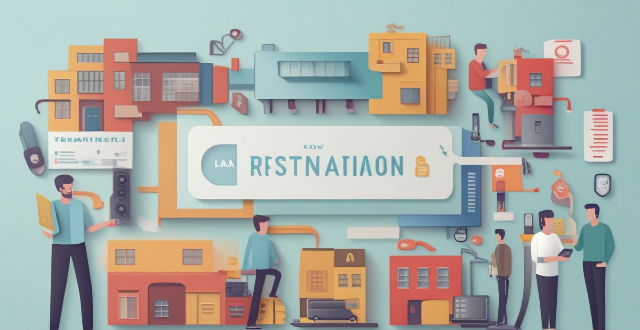
How can automation be used to improve customer service ?
Automation can significantly enhance customer service by streamlining processes, reducing errors, and providing consistent support. It enables personalized communication through chatbots and email automation, efficient processes via self-service options and backend automation, a consistent experience with standardized responses, cost-effective solutions through scalability, and continuous improvement using feedback loops. As technology progresses, the potential for automation in customer service will continue to expand, leading to more innovative ways to meet customer needs.
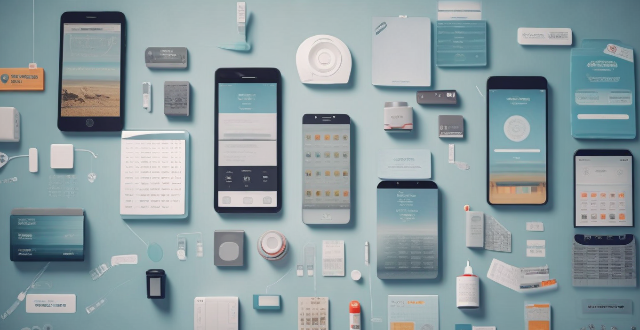
Why does my cell phone have no service in some places ?
Cell phone service can be affected by various factors, leading to no service or weak signal in certain areas. The main reasons include network coverage, physical obstructions, technical issues, and other external factors like weather conditions and congestion. It's essential to check with your cell phone provider if you frequently face service issues in specific locations.
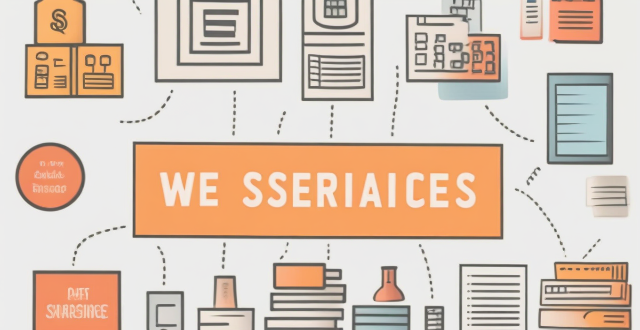
How can I compare different online shopping sites for their customer service ?
In this article, we discuss how to compare different online shopping sites for their customer service. The first step is to research and gather information by reading reviews and testimonials, checking social media presence, and asking for recommendations from friends or family. The second step is to analyze the information by comparing customer service options, evaluating response time, and assessing quality of service. The final step is to make a decision based on weighing pros and cons and trying before you buy. By following these steps, you can choose an online shopping site that offers excellent customer service and meets your needs.

Should I use a bank or a currency exchange service ?
When it comes to exchanging currencies, you have two main options: banks and currency exchange services. Both have their advantages and disadvantages, so it's important to consider your specific needs before making a decision. Advantages of Using a Bank: - Security: Banks are generally considered more secure than currency exchange services because they are regulated by government agencies. Your money is protected by insurance policies, such as the Federal Deposit Insurance Corporation (FDIC) in the United States. - Convenience: Many banks offer online and mobile banking services, allowing you to easily manage your account and make transactions from anywhere. You can also withdraw cash from ATMs worldwide without additional fees. - Fees: Banks typically charge lower fees for currency exchange compared to currency exchange services. Some banks even offer fee-free currency exchange if you have an account with them. Advantages of Using a Currency Exchange Service: - Better Exchange Rates: Currency exchange services often offer better exchange rates than banks because they specialize in foreign currency exchange. This means you can get more money for your currency than if you were to use a bank. - No Fees: Many currency exchange services do not charge any fees for exchanging currencies. However, some may still charge a small commission or service fee. - Speed: Currency exchange services are usually faster than banks when it comes to exchanging currencies. They often have shorter processing times and can provide you with the currency you need quickly. Disadvantages of Using a Bank: - Limited Availability: Not all banks offer foreign currency exchange services, especially smaller local banks. You may need to visit multiple banks to find one that offers this service. - Higher Fees: As mentioned earlier, banks typically charge higher fees for currency exchange compared to currency exchange services. This can add up quickly if you need to exchange large amounts of currency. Disadvantages of Using a Currency Exchange Service: - Security Risks: Currency exchange services are not regulated by government agencies like banks are. This means there is a higher risk of fraud or theft when using these services. - Limited Locations: Currency exchange services may not be available in all locations, especially in rural areas or smaller towns. You may need to travel to a larger city or airport to find one. - Limited Services: Currency exchange services typically only offer foreign currency exchange and do not provide other banking services like checking accounts or loans. If you need additional financial services, you will need to use a separate bank.
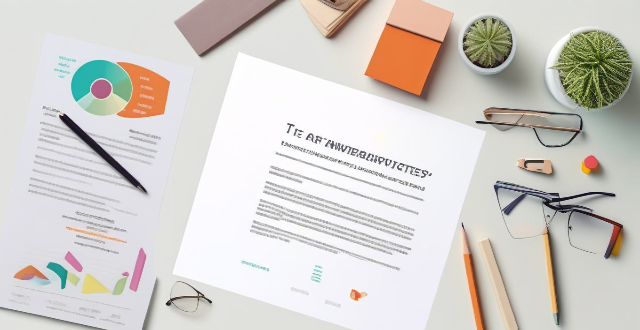
Are there any advantages to using a tax refund service company instead of doing it myself ?
Using a tax refund service company offers several advantages, including time-saving, accuracy, expertise, convenience, and peace of mind. These services can help maximize refunds or minimize tax liability by ensuring accurate tax preparation and staying up-to-date with changing tax laws and regulations.

How do I choose the right VPN service for my needs ?
Choosing the right VPN service is crucial for ensuring your online privacy, security, and accessing geo-restricted content. Here's a guide to help you make an informed decision: 1. Identify Your Needs: Determine what you need the VPN service for, such as privacy and security, accessing geo-restricted content, bypassing censorship, or improving gaming experience. 2. Check the VPN's Location and Jurisdiction: The legal jurisdiction of the VPN provider plays a significant role in your privacy. Look for providers located in countries without strict data retention laws. 3. Encryption and Protocols: The level of encryption and the protocols offered are critical for security. OpenVPN and IKEv2 are considered the most secure and efficient. Avoid VPNs that rely on PPTP or L2TP/IPSec without a separate encryption layer. 4. Server Network and Speed: A vast network of servers worldwide ensures better speed and connectivity. Look for a VPN with numerous servers across different continents. Speed is also crucial, especially if you plan to stream HD videos or download large files. 5. Privacy Policy and Logging: A strict no-logs policy is vital for maintaining your privacy. Always check the privacy policy to ensure they don't collect or share your data. 6. Device Compatibility and User Interface: Choose a VPN that supports all your devices, including smartphones, tablets, and PCs. A user-friendly interface makes it easier to connect and manage your VPN settings. 7. Customer Support: Look for VPNs that offer 24/7 live chat support or at least a responsive ticket system. Good customer service can help resolve technical issues quickly. 8. Price and Value for Money: While free VPNs might seem appealing, they often come with limitations, such as data caps and slower speeds. Paid VPNs offer more features and better performance. Consider the cost against the services provided to determine the best value. 9. Reputation and Reviews: Research the VPN's reputation through reviews and forums. Feedback from other users can provide insights into the reliability and effectiveness of the service. 10. Legal and Ethical Considerations: Ensure that the VPN service you choose complies with local laws and ethical standards. As per the statements from the Ministry of Industry and Information Technology, using a VPN for legitimate business purposes is protected under law. Always use VPNs responsibly and for legitimate purposes. In conclusion, choosing the right VPN service requires careful consideration of your needs, the provider's security measures, server network, privacy policy, device compatibility, customer support, and cost. By following these guidelines, you can find a VPN service that meets your requirements while ensuring your online privacy and security.

What are the benefits of using a package forwarding service for international shopping ?
**Benefits of Using a Package Forwarding Service for International Shopping** Using a package forwarding service offers several benefits for international shoppers, including cost savings, increased shopping flexibility, potential tax and duty advantages, convenience, additional services, and peace of mind. These advantages make it easier and more efficient to shop from retailers around the globe without directly facing the complexities of international shipping.
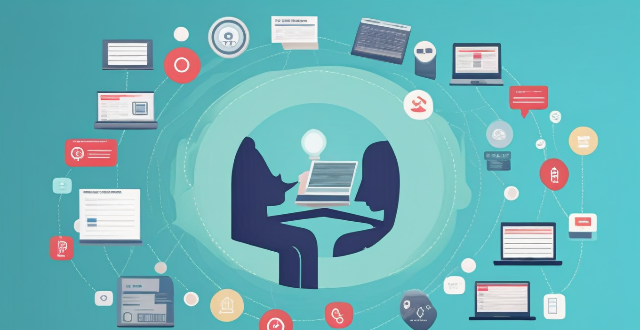
What happens to my Apple ID after cancelling an Apple service or product subscription ?
Cancelling an Apple service or product subscription does not affect your Apple ID account. Your Apple ID remains active and you can continue to use it for other services and products offered by Apple. However, the specific service or product that you cancelled will no longer be available to you.

How do I set up a VPN service on my computer or mobile device ?
Setting up a VPN (Virtual Private Network) is an excellent way to ensure your online privacy, bypass geo-restrictions, and enhance your security on the internet. Here's a detailed guide to setting up a VPN service on your computer or mobile device: 1. Choose a VPN Service Provider: Research and select a reliable VPN service that suits your needs in terms of security, speed, and price. Ensure the provider offers apps for your operating system, whether it's Windows, macOS, Android, or iOS. 2. Sign Up for the Service: Visit the VPN service website and sign up for an account. Choose a payment plan and complete the subscription process. 3. Download and Install the VPN App: Once you have subscribed, download the VPN app from your provider's website or your device's app store. Install the app on your device following the standard installation procedures. 4. Configure the VPN App: Open the VPN app and log in using your account credentials. Select a server location; usually, the app will recommend the fastest or closest server to you. Customize the settings if needed, such as enabling startup with Windows or configuring the kill switch feature. 5. Connect to the VPN: Click the connect button in the VPN app to establish a connection to the chosen server. A secure and encrypted tunnel will be created between your device and the server. 6. Verify the VPN Connection: Check your IP address and location using online services like `ipleak.net` to ensure your real identity is concealed. Test the connection by trying to access content that is normally blocked in your region. 7. Troubleshooting: If you encounter connection issues, check your network settings or try connecting to a different server. Make sure your firewall and antivirus software are not blocking the VPN connection. 8. Regular Maintenance and Updates: Keep your VPN app updated to benefit from the latest security features and performance improvements. Monitor your data usage if your VPN service has bandwidth limitations. Additional Considerations: Look for VPN services that offer strong encryption protocols like OpenVPN or IKEv2 for maximum security. Ensure that your VPN service has a strict no-logs policy to protect your online activities from being recorded. Some VPN services allow multiple devices to be connected simultaneously under one account – consider this feature if you use multiple devices.